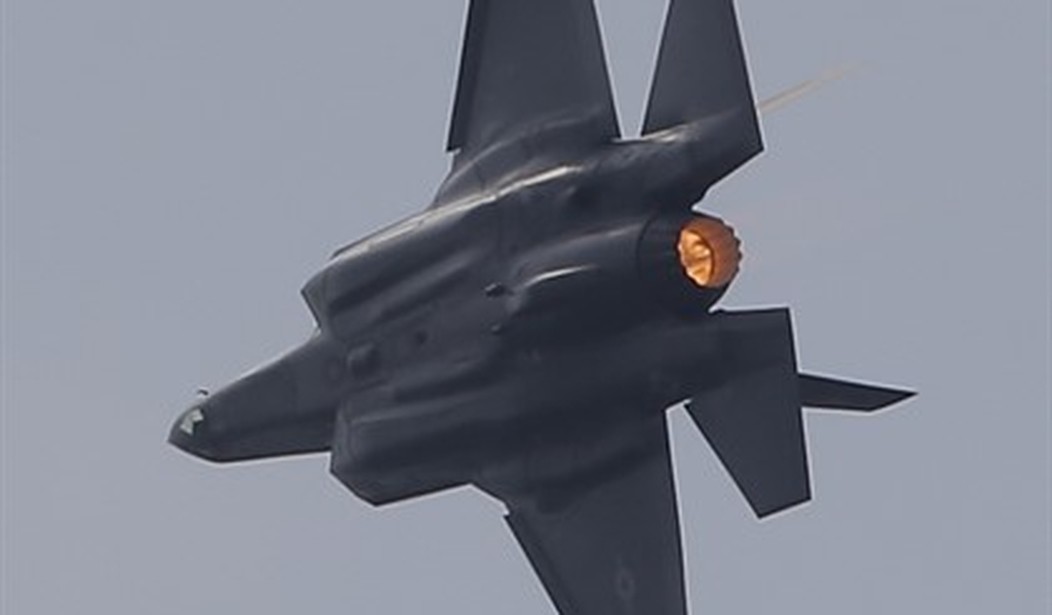The United Arab Emirates (UAE) could pull out of a $23 billion deal with the U.S. to purchase F-35 stealth jets, Reaper drones, and advanced support gear, according to a new report in the Wall Street Journal.
The deal — negotiated under President Donald Trump — would give the tiny, oil-rich nation the deadliest and most advanced air force in the region aside from Israel’s.
Nevertheless: “The U.A.E. has informed the U.S. that it will suspend discussions to acquire the F-35,” a UAE official said on the eve of a high-level Pentagon visit. “Technical requirements, sovereign operational restrictions, and the cost/benefit analysis led to the reassessment.”
When I read that the UAE was threatening to cancel such an important deal, my first thought was that it was just a part of their well-understood negotiating process.
However, this time there’s a deeper and much more strategic issue behind the balk, but I’ll get to that in a moment.
I’ve learned a bit over the years about the way the UAE conducts business because I hear it secondhand all the time from my wife, who works for a defense contractor that does a lot of business with the Emirates.
Basically, every contract negotiation between Americans and their Emirati counterparts begins with the Emiratis going back on half of the things they’d agreed to in the previous meeting. Settled points become unsettled without notice, and settling never-settled points is put off indefinitely while the Americans try to get the previously-settled points re-settled.
Got all that? There will be a quiz at the end of the column.
Calling negotiating with the UAE “time-consuming” or “frustrating” would be like calling Jeffrey Epstein “not the nicest man.”
“Ridiculously hard to get paid when you practically have to move in with them,” my wife tells me.
But this time there are bigger things at stake than selling a couple dozen stealth fighters and drones at an agreed-to price.
Here’s the sticking point, according to the WSJ, and it has nothing to do with the exactingly negotiated fine print:
U.S. officials acknowledged receipt of the letter and the Emirati concerns. The U.S. has grown increasingly troubled over China’s influence inside the U.A.E., and has spelled out conditions that would ensure the fifth-generation jet fighter and advanced drones wouldn’t be vulnerable to Chinese espionage.
“China,” the Journal reports, “is among the U.A.E.’s closest trading partners and U.S. officials have increasingly expressed concerns about signs of nascent security cooperation between the two countries.”
Also for our VIPs: Biden and Yellen Are in Dangerous Denial About Inflation
The Emirates buys nothing but the best. Their custom version of the F-16 — the F-16E/F Block 60 — had radar and avionics more advanced than anything in our own Air Force’s inventory.
The UAE must know that the U.S. is willing to cancel F-35 sales over security concerns. We did just that to Turkey over their insistence on buying super-advanced Russian antiaircraft missiles — and Turkey was one of the F-35’s global manufacturing partners.
So it would seem that with the F-35 — the most advanced strike fighter anywhere in the world — we hold the upper hand.
Not so fast.
China’s J-31 stealth fighter is believed to be a good-enough clone of the F-35, no doubt built with stolen technology. But Chinese engineering has, with disquieting swiftness, advanced from “cheap copycats” to “fast followers” to “true innovators.”
If the J-31 is good enough today, it might be as good, or better, than the F-35 tomorrow.
If Beijing were to become the UAE’s go-to arms supplier, Beijing’s influence would grow there commensurately.
The U.S. has tried to become and remain dominant in the Arab Middle East for decades and because of just one thing: Oil.
But now we have a peer competitor in China that needs Arab oil, too — and is flush with cash, ambition, and maybe even world-class arms.
An Arab shift towards China would be every bit as devastating to U.S. security interests as when our one-time staunch ally, Iran, turned Islamist in 1978.
Maybe even more so.
Best remedy? Get a Republican back in the White House and get us back to energy independence once more. Then, and only then, will we be able to give little oil-rich headaches the single-finger salute they so richly deserve.
Once that happens, if China wants the Arab Middle East tar baby, they can have it.










